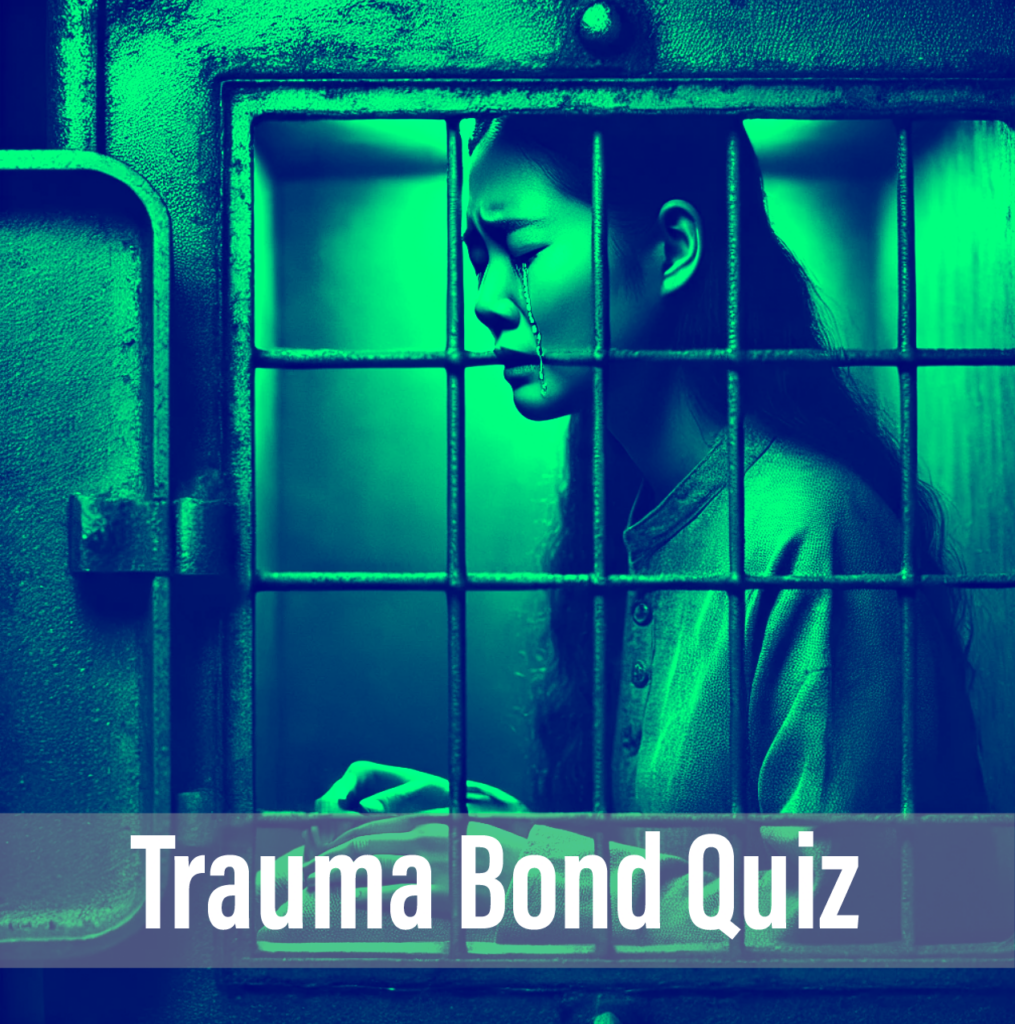

Trauma Bond Quiz

We use cookies to help you navigate efficiently and perform certain functions. You will find detailed information about all cookies under each consent category below.
The cookies that are categorized as "Necessary" are stored on your browser as they are essential for enabling the basic functionalities of the site. ...
Necessary cookies are required to enable the basic features of this site, such as providing secure log-in or adjusting your consent preferences. These cookies do not store any personally identifiable data.
Functional cookies help perform certain functionalities like sharing the content of the website on social media platforms, collecting feedback, and other third-party features.
Analytical cookies are used to understand how visitors interact with the website. These cookies help provide information on metrics such as the number of visitors, bounce rate, traffic source, etc.
Performance cookies are used to understand and analyze the key performance indexes of the website which helps in delivering a better user experience for the visitors.
Advertisement cookies are used to provide visitors with customized advertisements based on the pages you visited previously and to analyze the effectiveness of the ad campaigns.



This questionnaire is designed to help you assess your readiness for entering a new romantic relationship. The questions cover various aspects of emotional health, self-awareness, communication skills, and more.
1. Have you completely moved on from your last relationship?
2. Do you feel at peace with your past relationships?
3. Can you think about your ex without feeling strong emotions?
4. Are you free from lingering anger or bitterness towards your ex?
5. Have you forgiven yourself and your ex for any past mistakes?
6. Do you know what you want in a future partner?
7. Are you clear about what you need from a relationship?
8. Do you have a strong sense of your values and priorities?
9. Are you aware of any patterns from past relationships that you'd like to change?
10. Do you feel you've learned important lessons from past relationships?
11. Do you feel confident in who you are?
12. Are you happy with your life as it is right now?
13. Can you enjoy being alone without feeling lonely?
14. Do you love yourself and recognize your self-worth?
15. Are you not seeking a relationship to fill an emotional void?
16. Are you ready to compromise in a relationship?
17. Do you understand that relationships require effort and sacrifice?
18. Can you balance your needs with the needs of a partner?
19. Are you open to considering another person's perspective?
20. Are you willing to work through disagreements constructively?
21. Do you have clear personal boundaries?
22. Are you comfortable expressing your needs and desires to others?
23. Can you say "no" without feeling guilty?
24. Are you realistic about what you expect from a relationship?
25. Do you understand that no relationship is perfect?
26. Do you have a strong support network of friends and family?
27. Are you involved in activities and hobbies you enjoy?
28. Do you have a fulfilling life outside of a relationship?
29. Are you able to maintain friendships and family connections?
30. Do you feel socially supported?
31. Are you excited about the idea of sharing your life with someone else?
32. Do you want to enrich someone else's life as much as your own?
33. Are you ready to make someone else a priority in your life?
34. Do you feel ready to build a life together with someone else?
35. Are you looking forward to creating new memories with a partner?
36. Do you feel no pressure to be in a relationship?
37. Are you not desperate for a relationship due to loneliness?
38. Are you free from societal pressure to be in a relationship?
39. Do you want a relationship for the right reasons, not out of fear?
40. Are you patient and willing to wait for the right person?
41. Are you comfortable talking about your feelings?
42. Do you listen actively when others speak?
43. Are you able to have difficult conversations without shutting down?
44. Do you feel comfortable being vulnerable with others?
45. Can you express your needs without feeling anxious?
46. Are you able to handle rejection without it affecting your self-esteem?
47. Can you recover from setbacks quickly and positively?
48. Are you resilient in the face of relationship challenges?
49. Do you stay emotionally stable even during stressful situations?
50. Can you maintain a positive outlook on love and relationships?